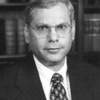Laurence Meyer

Laurence Meyer
Laurence Meyeris an economist and was a United States Federal Reserve System governor from June 1996 to January 2002...
easy far gradual interest rates rising steady
So far it's been an easy roll, with interest rates rising at a steady gradual pace.
overall percent reduce
They could reduce tumors 88 percent overall and they could reduce 100 percent of cancerous tumors.
difficult economic model
He didn't think about the economic world the way most of us do. It made it difficult for him to communicate. His model was fundamentally different from everyone else's. That is what we'll miss.
below employment fed payroll slow study
If the Fed study is right, payroll employment would have to slow to well below that.
aggregate balance demand distinct further higher inflation labor markets product risk suggest supply today
The balance of aggregate demand and sustainable supply today and the distinct possibility that labor and product markets will tighten further suggest an unacceptable risk of overheating and, therefore, higher inflation in the future,
fed less might net next people picked tables thinking wider
That appointment got people scurrying back to their probability tables for the next Fed chairman, thinking the net might be wider and the person picked might be less credentialed, and that got people nervous.
becomes sources staff together
The staff and Don Kohn together are important sources of continuity, Kohn becomes more important.
communication innovation message policy
It was the same policy message but with a little innovation in communication.
challenge fed
This is a very big story. It makes the challenge for the Fed a little greater.
challenge likely mistakes policy time
The challenge is in making day-to-day policy at a time when mistakes are most likely to be made.
becomes sources staff together
The staff and Don Kohn together are important sources of continuity, ... Kohn becomes more important.
close committee continues focus given indication policy removal
The Committee continues to see the removal of accommodation as the focus of policy and has given no indication that it is close to the end of that process,
closer easy job knowing likely mistakes
The easy job has been done, unfortunately. Mistakes are more likely when you get closer to the end, not knowing where the end is, and that's where we are.
difference disaster energy
The difference with this disaster is that we have an energy shock.